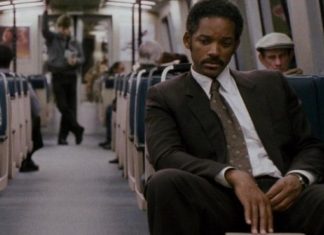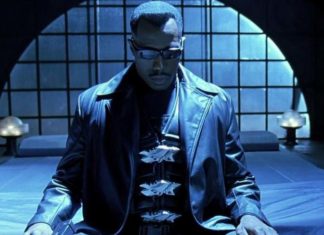Auteur cinema has been a platform for exploring the most intimate and often controversial facets of society. Among these themes is the life and cultural impact of escorts in India, whose representation on the big screen goes beyond mere stereotyping.
This approach allows us to discover how these figures have influenced cinematic narrative, offering a unique perspective on issues of autonomy, power and vulnerability. Through an analysis of several cinematic works, this essay will explore the complex interplay between the representation of Pune escort services and their impact on popular culture and social perception.
Auteur Cinema and the Representation of Marginality

Auteur cinema, known for its ability to delve into directors’ personal and aesthetic visions, offers fertile ground for exploring social issues often avoided or marginalised by commercial cinema. In this context, the representation of escorts not only fulfils a narrative function but also acts as a mirror of the tensions and contradictions present in society. Through the lens of auteur cinema, these figures are portrayed with a complexity that defies common stereotypes and raises questions about autonomy, power, vulnerability and identity.
An emblematic film in this area is director Luis Buñuel’s “Belle de Jour”. The protagonist, Séverine, a married woman who decides to work secretly as an escort, serves as a vehicle to explore the duality of her life and her hidden desires. Buñuel uses this character to critique the social and moral restrictions imposed on female sexuality, while highlighting Séverine’s agency in her quest for self-knowledge and emancipation. This film not only challenges social norms but also invites viewers to question their own perceptions of morality and freedom.
Another director who has similarly explored the life of escorts is Jean-Luc Godard with his film “Living Your Life”. The story follows Nana, played by Anna Karina, who is forced by unfortunate circumstances to work as a prostitute in Paris. Godard presents her daily life in a series of vignettes that reveal both mundanity and moments of existential crisis. Through a distinctive cinematic style that includes metaphysical dialogue and a fragmented narrative, Godard not only portrays Nana’s struggle for autonomy but also her role as an object of observation, both for the clients within the film and for the viewers.
These films and others like them within the auteur genre use their narratives to focus on escorts not as mere props in their stories, but as central figures whose lives and decisions reveal broader critiques of society. This approach allows for a rich and nuanced exploration of issues such as exploitation, gender inequality, and personal freedom. Furthermore, these depictions help to understand how the social environment and power structures influence these women’s individual decisions, providing a window into the complexity of their experiences in a world that often marginalises or misunderstands them.
By immersing itself in these stories, auteur cinema not only provides a platform for these voices to be heard, but also actively challenges audiences to confront and reflect on their own preconceptions. This is one of the most valuable contributions of auteur cinema: its ability to alter perception and foster meaningful dialogue on issues that would otherwise remain hidden or misunderstood.
Duality of Influence: Stigma and Empowerment
In auteur cinema in the United Kingdom, the figure of the Birmingham escorts frequently embodies a significant duality that reflects both empowerment and stigma. This duality not only enriches the plot and character development, but also provides a means to discuss and question broader social norms related to sex work and personal autonomy.
Take, for example, the film “Klute” directed by Alan J. Pakula, where Jane Fonda plays Bree Daniels, a sex worker and aspiring actress who becomes embroiled in a plot of mystery and suspense. Fonda delivers a complex performance that defies the typical portrayal of escorts in film. Bree is both subject and object within the narrative, handling her situation with a mixture of determination and vulnerability. Through this character, “Klute” explores not only the realities of sex work, but also the issues of surveillance, autonomy versus control and exploitation under the guise of protection. The film proposes a discussion on how society labels escorts and how these labels can coexist with personal agency.
Another significant example is “Monster”, directed by Patty Jenkins, in which Charlize Theron plays Aileen Wuornos, a prostitute who becomes a murderer. Although “Monster” approaches Wuornos’ life from a more dramatic and tragic perspective, it also offers a raw portrayal of desperation and extreme circumstances. In this narrative, the stigma associated with sex work is shown in its most destructive form, highlighting how marginalisation and dehumanisation can lead to fatal consequences. However, even within this bleak context, the film attempts to capture moments of self-determination and resistance against oppressive forces.
These representations in auteur cinema not only illustrate the complex lives of escorts but also raise critical questions about social acceptance and morality. Through rich and multidimensional characters, these films challenge stereotypes and offer a platform to discuss empowerment within a context of stigmatisation. By exploring these dualities, auteur cinema forces us to reconsider our own perceptions and potentially encourage a change in how these issues are perceived and dealt with in society.
This exploration of duality not only highlights the contradictions inherent in the lives of escorts, but also reflects the contradictions in societal attitudes towards them. By presenting these characters as complete individuals with desires, fears and ambitions of their own, auteur cinema encourages a deeper and more nuanced understanding of their experiences, promoting a more compassionate and complex view that goes beyond stigma.









